You don’t travel the world for 15 years without picking up a few tips along the way – here’s how to travel like a pro!
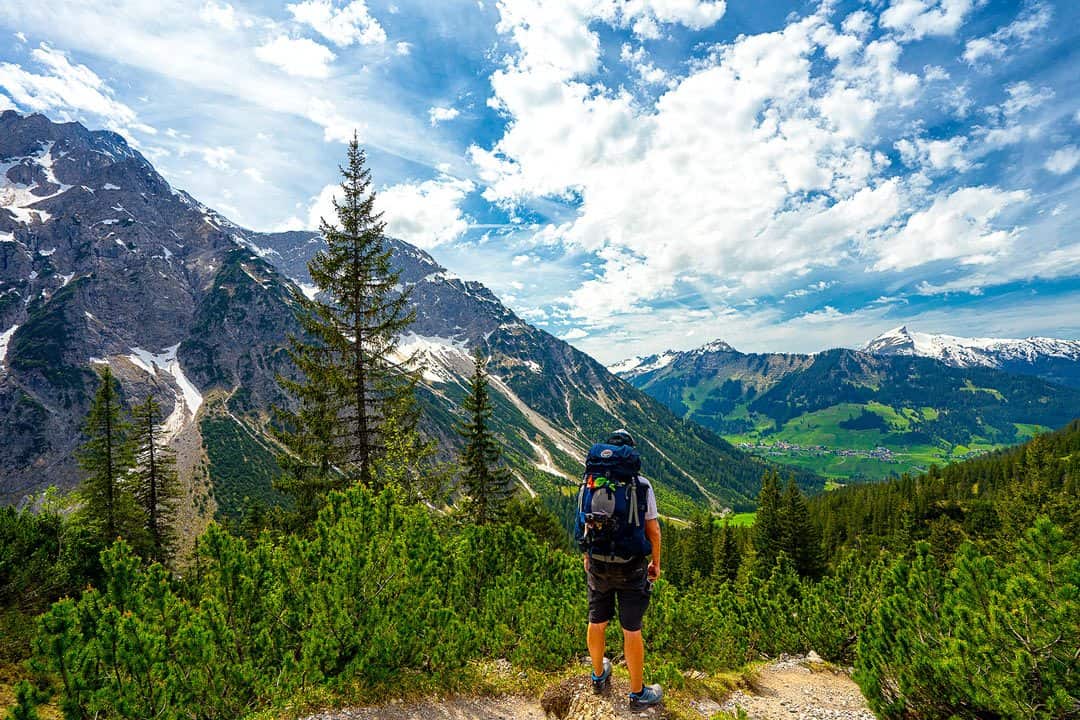
Once upon a time, we had never travelled or backpacked around the world before. Alesha and I were fresh out of our teens, and the idea of exploring the globe was intimidating, yet intriguing.
We dreamed of leaving our comfort zone, but were nervous about the mistakes we would make along the way.
Then one day we made the decision to leave our homes, alone (this was years before we had actually met), and step out into the big, scary world.
We had no idea what to expect, how to travel, which scams to watch out for, who to talk to or how to make plans. We were complete beginners, but still we didn’t let that stop us.
We spent hours reading travel quotes, getting inspired and dreaming about what life changing experiences lay out there.
So individually, we booked our plane tickets, picked a destination, landed in a foreign country and set about making mistake after mistake.
And we loved it!
8 years later, we are still on the road, and a lot wiser than we were in the beginning. We still make the odd mistake, but we consider ourselves to be professional travellers now.
Drop us in almost any city in the world, and we will be able to sort ourselves out. But it took a long time to build up this experience.
So now we want to teach you how to travel like a pro. Our goal is to pass on some of the most useful bits of information that can help you hit the road and make far less mistakes than we did.
Not everything can be taught in a blog post – some things can only be learnt by stumbling your way around and following your instinct. But hopefully this article will help the beginner traveller learn how to travel like a pro!
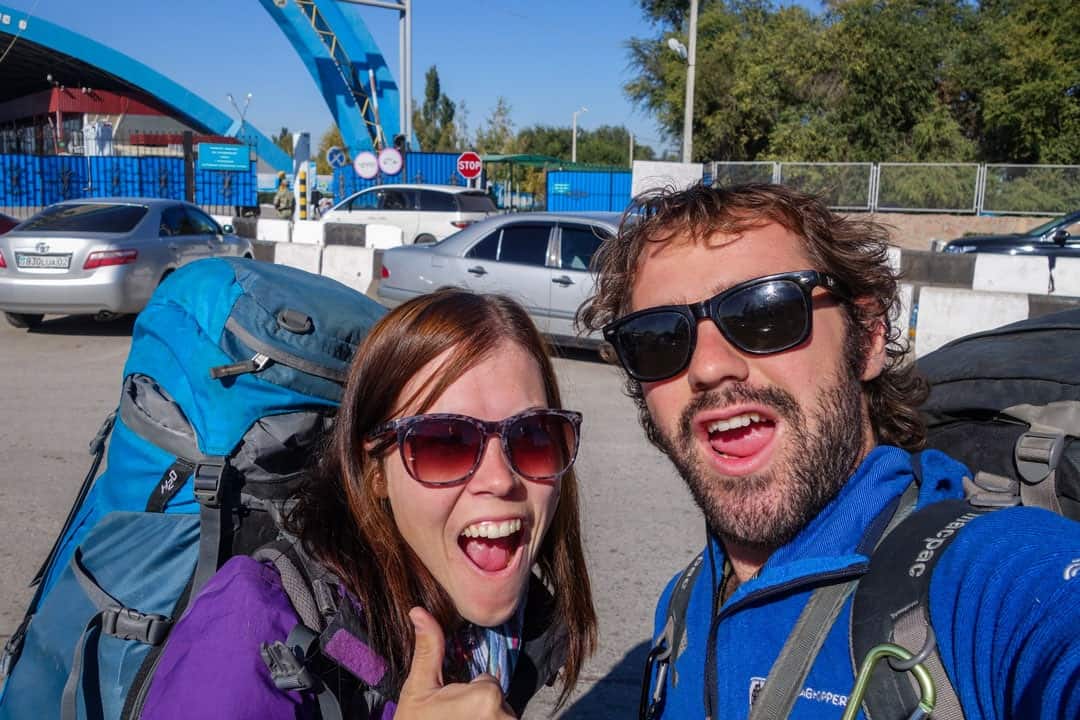
Table of Contents
Buy Travel Insurance
A wise man once said that if you can’t afford travel insurance, you can’t afford to travel. Based on our own personal experiences, and that of our friends, we agree 100%.
Travel insurance is more than just covering your personal belongings if they get stolen. It’s about looking after you if you get sick or injured during your trip or need to return home due to a family emergency.
Medical costs in foreign countries can quickly rise to hundreds of thousands of dollars. Yes, really. Our friend broke his leg in Canada while rock climbing and needed surgery. Total bill: $150’000.
The worst attitude you can have is to wander the world thinking “nothing will happen to me”. The best practice is to buy insurance and know that you will be covered if something goes wrong, then pray you never have to use it!
There are plenty of travel insurance companies you can check out. Make sure you also read our resource page on travel insurance.
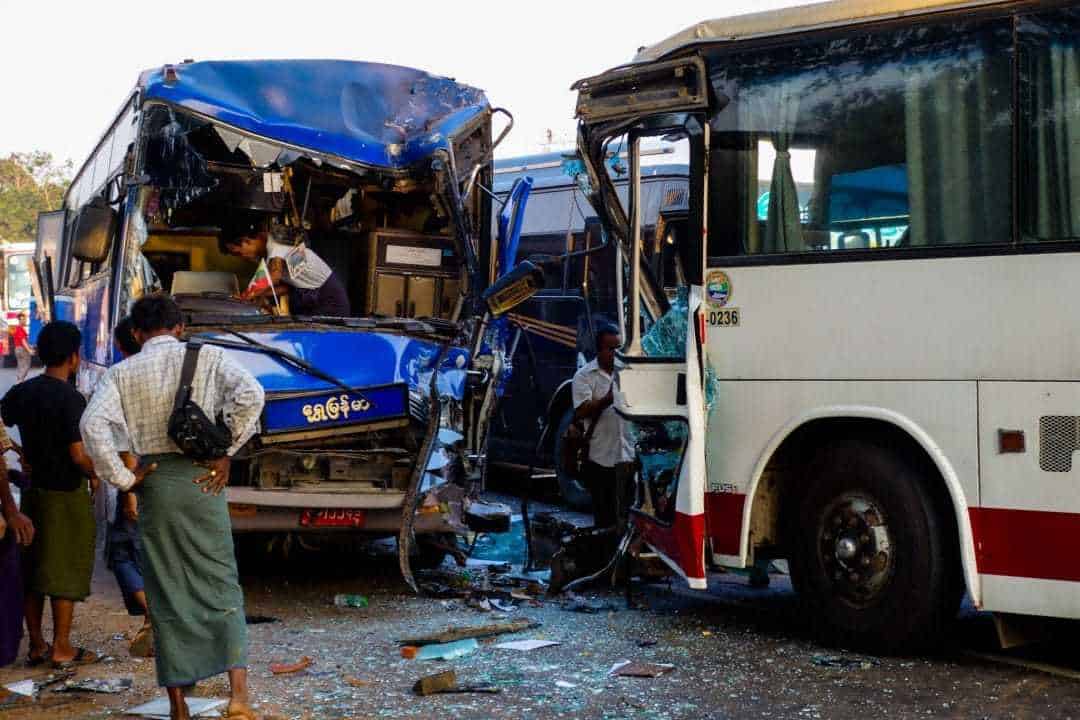
Get Out Of The Main Tourist Areas
If you spend all your time on the main streets and busy tourist areas you will quickly discover that everything is over-priced and overrun with touts.
Don’t get us wrong – the main attractions of any city are worth visiting. We just recommend you don’t do any of your shopping there.
Just go a couple of blocks back and you will see the massive difference. Food and drinks become half the price, the streets are quieter and shopping for souvenirs is far more enjoyable.
The same can be said for accommodation. Unless you desperately want to stay near a major tourist attraction (like in the heart of Athens, near the Acropolis for example), stay out of town.
Usually there are excellent neighbourhoods with great cafes, restaurants and bars that are walking distance from the main attractions, or only a few stops by public transport. Choose to stay out in those districts instead and just make the short commute to save money.
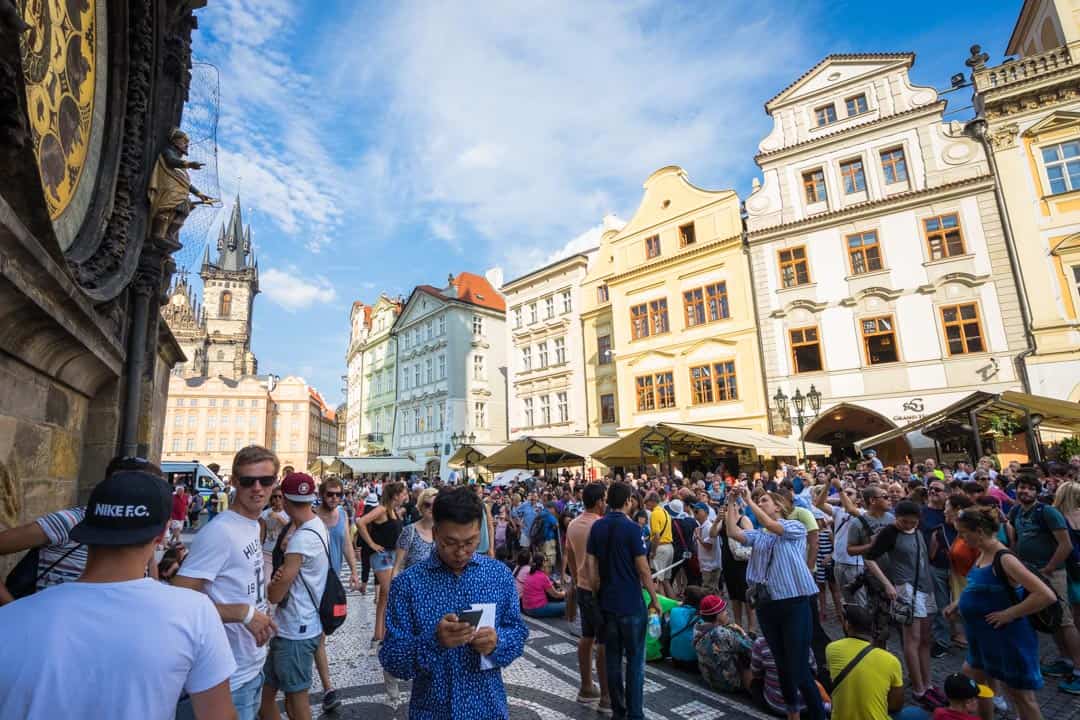
Always Carry A Water Bottle
It’s very easy to become dehydrated while you’re out exploring a new place. You’re so amazed by everything around you that you simply forget to drink water (or you do what we do and have a glass of wine or beer instead).
That’s why we always carry a water bottle with us. In many Western countries you can drink water straight from the tap, or there may be water fountains everywhere, but if you’re in a developing nation the water might not be safe to drink.
In times like these you have to buy bottled water as you go or sterilise the water using something like a Steripen (which is what we personally use)
But we’ll be honest; buying plastic water bottles all the time is not good for your budget or for the environment. So buy a water bottle, throw a carabiner on it and clip it to your daypack.
Another option is to buy large water jugs and fill up your steel bottles before you leave your accommodation. Not only does this help you save money, but you are then doing your part to reduce plastic waste.
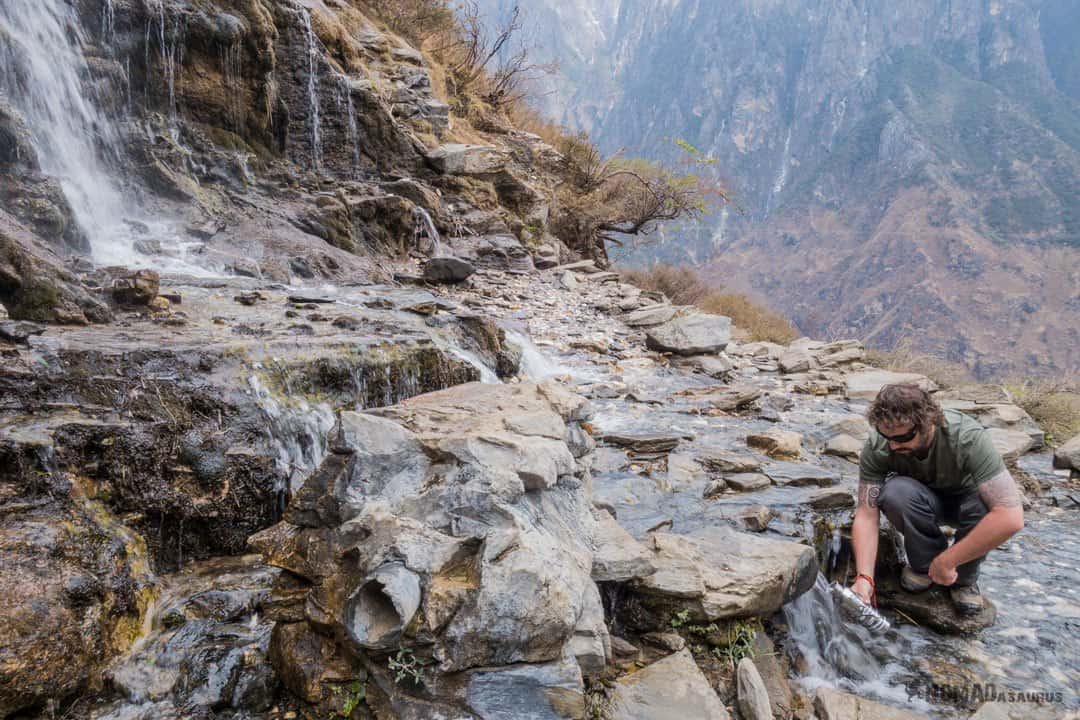
Catching Transport
Transport can be one of the toughest things to organise on the road if you don’t know what to look for.
In some destinations you can leave the work up to a travel agency or concierge (usually for a fee). Make sure you ask around at many agencies and see who can offer the best prices.
In a lot of parts of Asia and Latin America the best bet is to simply show up at the bus station and ask around. Sometimes you cannot buy tickets ahead of time, so being there on the stop is your only option.
If you prefer to do things on your own do a little bit of research online, then go to the bus or train station to see if you can buy the tickets yourself early. This might take more, time but will save you money in the long run.
We recommend doing this a day or two before your trip if you can to make sure you get a spot – or if you are in Europe buy your tickets well in advance to save money.
One tip – if you are in a foreign country and don’t speak the language take a screenshot of the name of the place you want to go, use Google Translate or ask a local to write down your destination to help remove any confusion.
For public transport in cities we use apps like Google Maps to work out the best routes to get around.
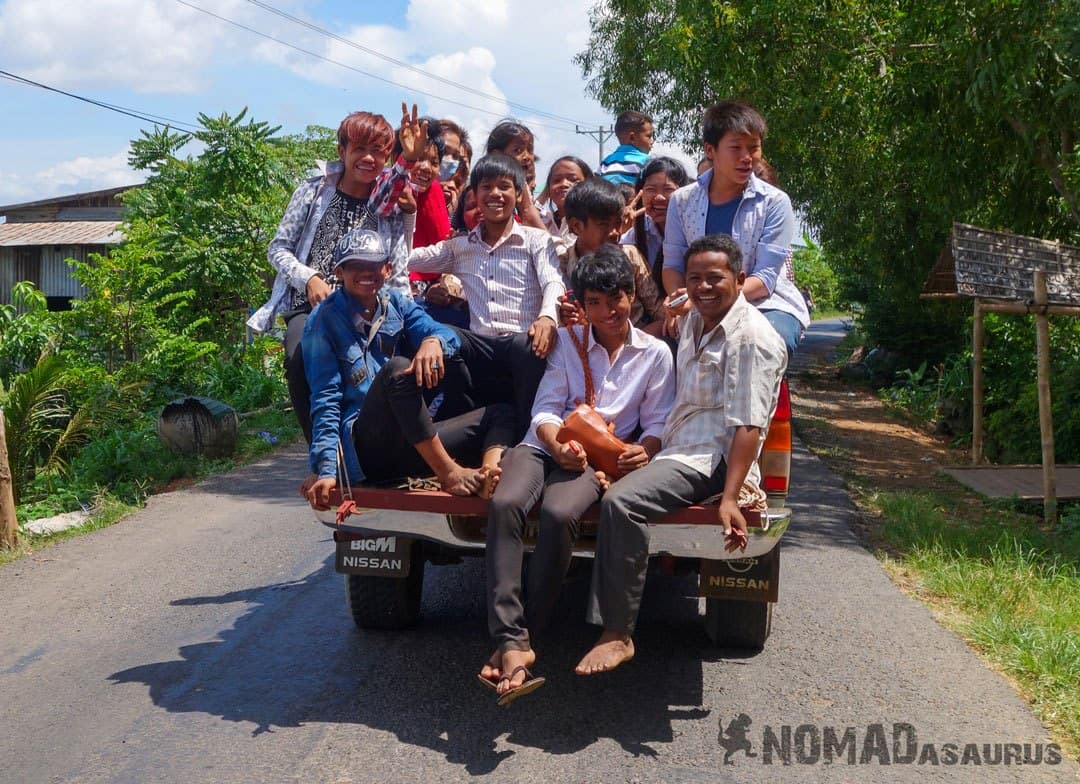
Staying Connected On The Road
In this day and age everyone wants to stay connected with their friends and family back home. And the great thing is that it’s very easy to do so!
Smart phones and plenty of wifi hotspots make getting a signal super easy, especially if you are in Europe.
But if you are the kind of person who likes having access to the internet all the time, for things like researching transport and being able to coordinate meet-ups with people, then the best thing you can do is get a local sim card.
If you are only on the road for a week or so then you might be able to take your personal number with you and pay the roaming fees. But this will be very expensive.
What we usually do is pick up a local sim card on the road in any country we are going to be in for more than ten days or so. You’ll be surprised at just how cheap these can be! For example in Romania we got a local sim card with unlimited calls and text and 7gb of data at 4G speeds for 7 Euro. Incredible!
But what if you are on a mammoth mission to multiple countries? Then you’ll want to get an international data hotspot.
It’s a portable router that connects up to 5 devices at once, so when we use it we routinely have 2 laptops and 2 phones hooked up.
It costs US$9.95 per 24 hours of use, so it’s not something you would use every single day of a trip if you are staying in one country a long time. But if you’re transiting through countries or only spending a short amount of time somewhere it can be much more economical (and less hassle) than getting a local sim card.
Also some places are quite expensive for data in general. Think $10-15 per GB of data on a sim card. Not great if you tend to use the internet a lot.
With the unlimited data we also can get a lot of work done on buses, in hostels where the wifi barely works *cough* Patagonia *cough* or at airports. We really love it, and for people who work online or like constant connectivity it’s brilliant.
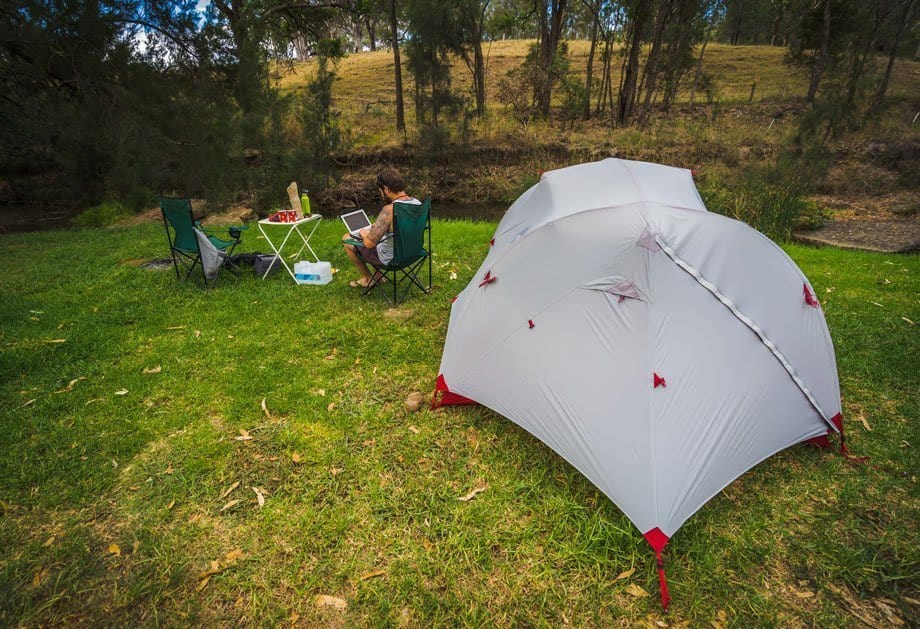
Finding Accommodation
In Asia and Latin America we would almost never book any accommodation before we got to a destination unless it was a big city, there was an event on or we were arriving late in the evening.
Often you can just show up in a town, walk around and find a great hostel or guesthouse for quite cheap. We would have a look first and decide what place looks the best in person.
We find this is also when you get the best deals. You can barter with the manager/owner and sometimes get your accommodation cheaper if you stay for a longer period (3+ nights, etc).
Even today we still recommend this!
For Europe it is unfortunately the opposite, especially in summer.
If you don’t book well ahead most of the best and cheapest accommodations are already gone, meaning you get stuck in a bad neighbourhood or end up forking out a lot of money.
Over the last few months here in Europe we have used Booking.com and AirBnB (our favourite) to find all of our accommodation and have had great success. In Asia Agoda works well. Trust us, you want to book stuff early here.
Another great thing to do with accommodation is stay somewhere long term. With a bit of research you can find lots of places where to live for cheap, such as in Thailand or Mexico.
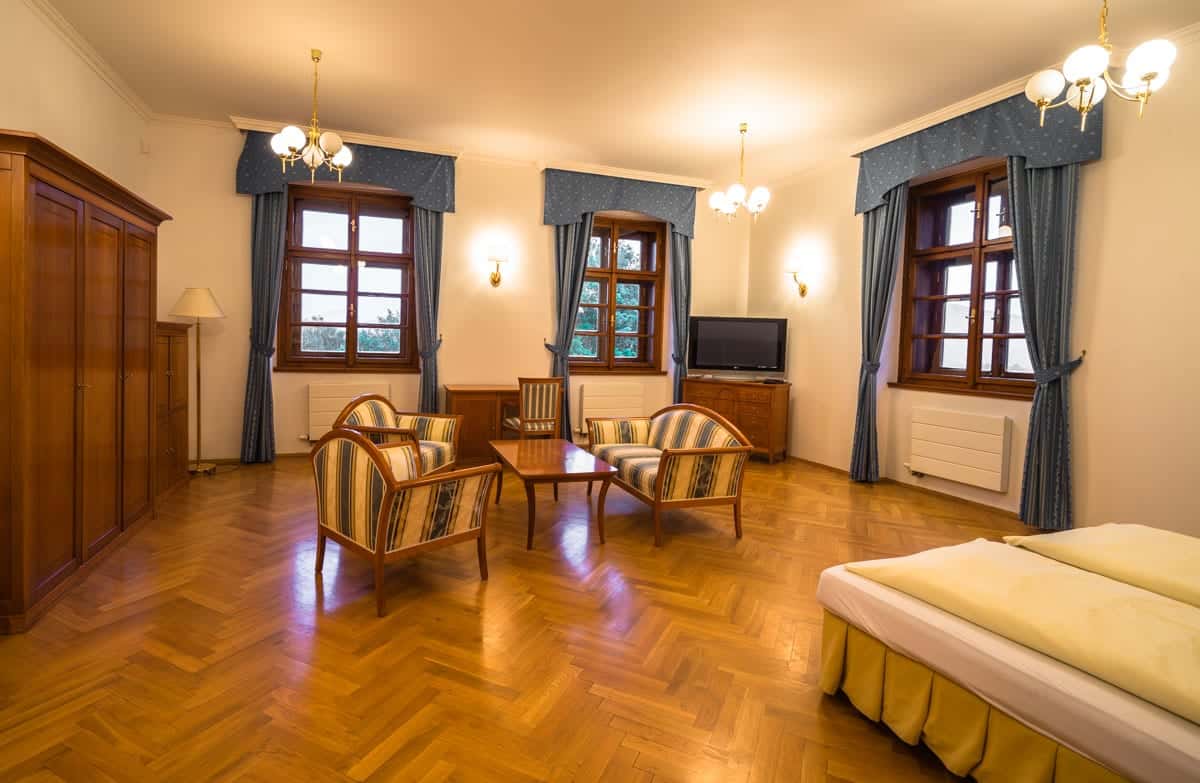
Where To Eat
Don’t be afraid of street food, markets or local restaurants! This is where you will find the best and cheapest food.
Make sure you look at where the locals are eating and which places are the busiest. If a street food market is cranking with people then you know it’s going to be good!
In developing nations local eateries are always going to be cheaper than in hotel restaurants or foreign-owned establishments. Take a risk and try something new.
In fact, it’s not even much of a risk. Research shows that you are just as likely to get food poisoning from a hotel restaurant as you are from the street.
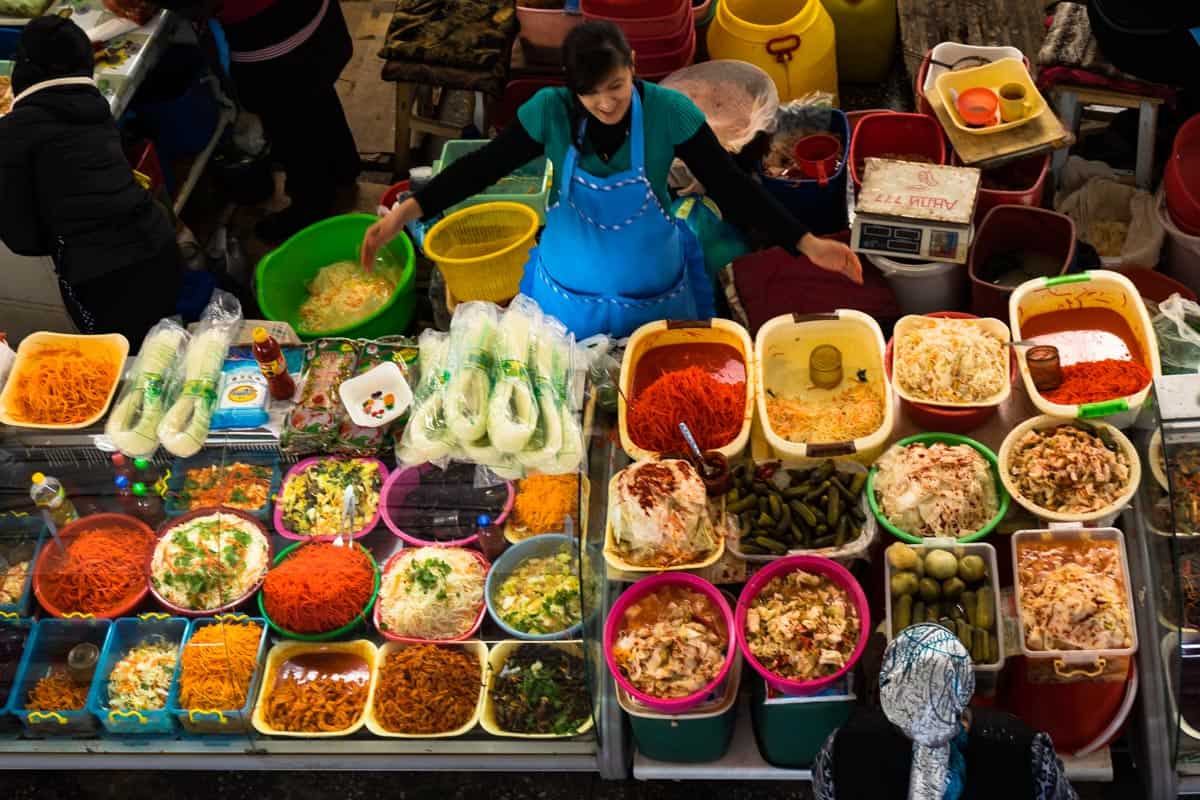
Learn The Language
We believe that learning a little bit of the local language is very important. To fully immerse yourself in everything possible when travelling, knowing a couple of words goes a long way.
Learning the language will help so much with local interactions. Learning a new languages can be hard but keep at it. Download some language apps or pick up a phrase book.
Honestly, you don’t have to become fluent in Mongolian if you are only in the country for a week. But being able to say hello, thank you and good bye is common courtesy.
Don’t just rely on English everywhere you go (even though it’s widely spoken around the world). Throwing out a couple of local words can help you get better prices when shopping or lead to amazing experiences.
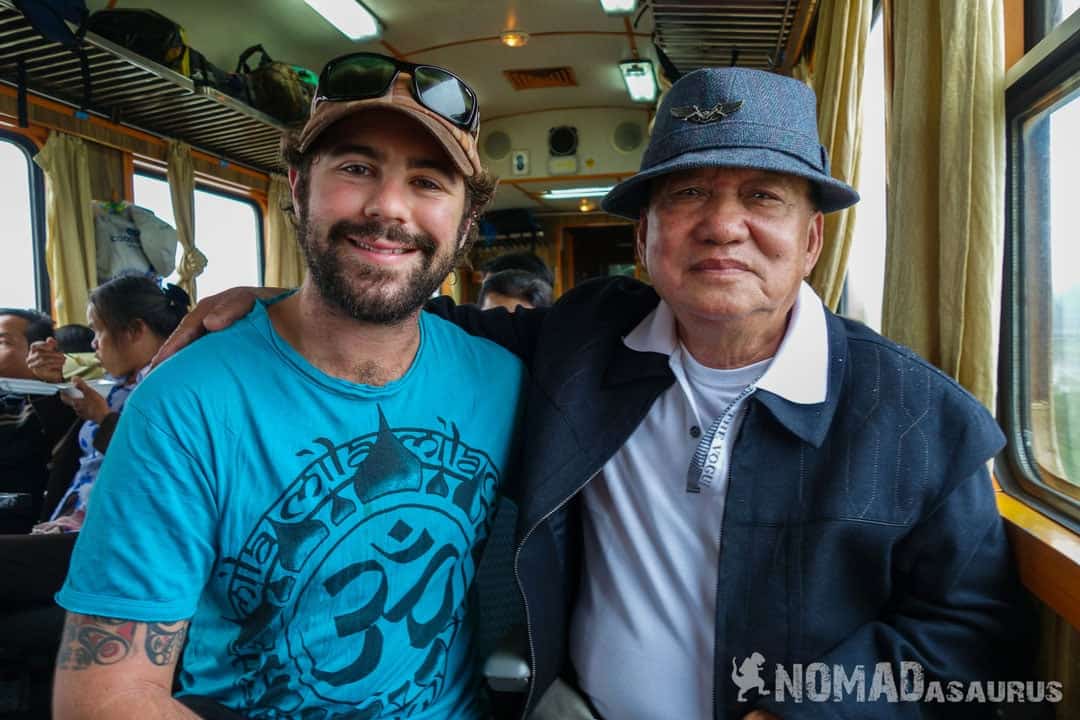
Avoiding Scams
Even the professional travellers (like us) get scammed from time to time when exploring new places.
Sometimes travellers don’t even realise they have been ripped off at all, and some just don’t care.
One thing for sure though is that once you get scammed or ripped off once, you will be a lot wiser next time.
The best thing you can do is to research local scams before you get to a new destination. A lot of people will write on the Internet about scams they’ve been affected by for others to know, either on travel blogs or TripAdvisor.
In our experience the most common scams come from taxi drivers. They know that you are new in a city and have no idea where you are, and will often use rigged metres or take long detours to rack up the bill. Sometimes they’ll just quote you an insane price hoping you’ll accept, because you don’t know any better.
Always ask how much the fare should be before you enter the vehicle and barter your price, or if available ask to go on the meter. If you have luggage, don’t pay the driver until he gets out of the vehicle as well, or if you have a hold of your bags. We have heard of people getting out of the taxi and having the driver drive off with their backpacks still in the boot.
Also be wary of people who approach you on the street to start a conversation. As much as it sucks having to be cautious, if someone comes up to you pretending to be your friend or “practice their English”, they may be trying to scam you in some way.
Have your guard up a little, but explore the situation. If they offer to take you to a bar or restaurant, or start talking about any kind of transaction, be polite and say no thanks.
Just be aware that not everyone is out to scam you though, and some of the most amazing interactions we’ve ever had came from someone randomly talking to us.
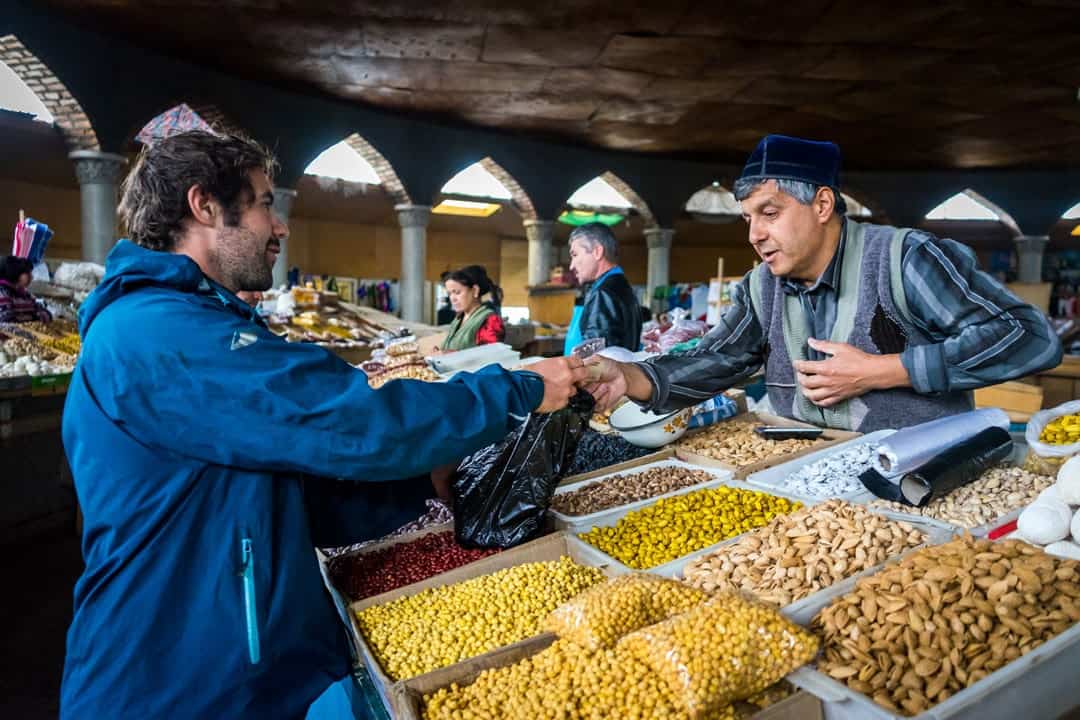
How To Make Friends On The Road
Some people make friends very easily on the road, and others struggle to engage with other travellers or locals. If you are the latter kind, realise that there’s nothing wrong with being a little bit introverted. But there are some tricks to make it easier.
The most obvious one for us is to stay at hostels. People who travel solo tend to stay at hostels, and this is a great way to make new friends.
Solo backpackers are all of a sudden thrown in one place, and a simple question like, “So, where are you from?” or “Where are you travelling?” is all it takes to start a conversation with someone that could lead to a great friendship.
Signing up for tours is another great way to meet people, or going on pub crawls (if you are the kind of person who likes a drink now and then).
One of our favourite ways to meet people when travelling is through Couchsurfing. Here people offer a space in their home for travellers to stay for free (but don’t look at it only as a way for free travel!), which automatically allows you to connect with a local or expat and spend time with them.
If staying in a stranger’s house freaks you out a bit you can always check out a Couchsurfing meet up. Most big cities around the world will have a number of Couchsurfers who are active in the community, and they might have parties or dinners around the place.
At the end of the day the best way to make friends with people while travelling is to just be yourself, say hello to someone and start chatting.
Sign up for Couchsurfing here.
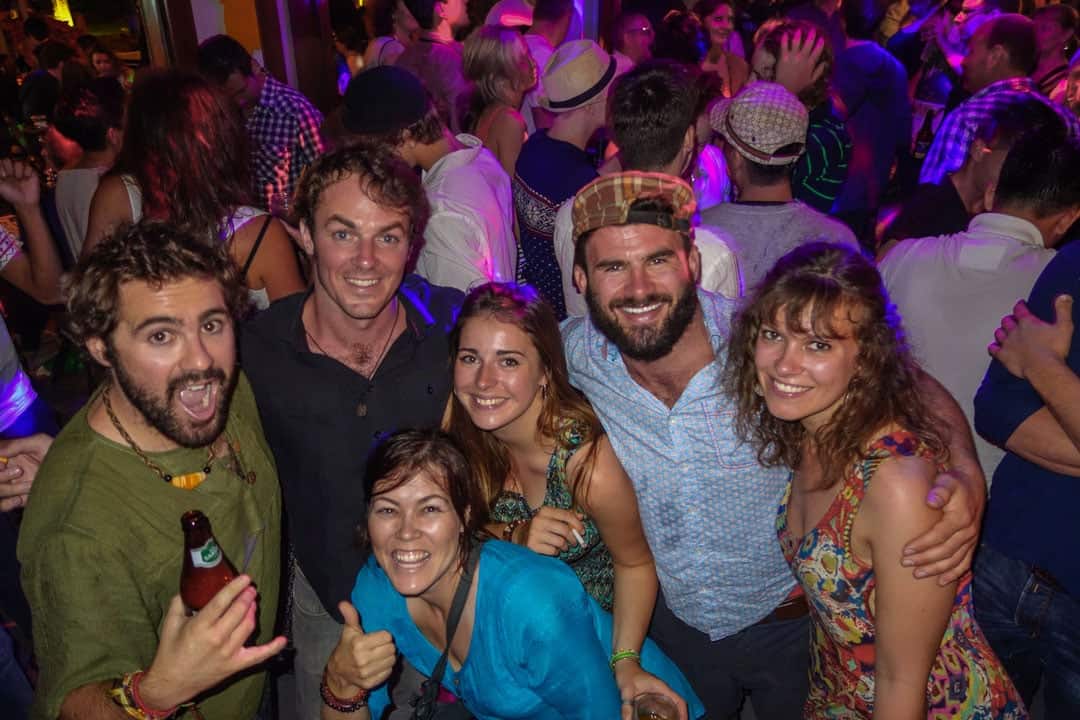
Respect The Local Customs
If you are travelling somewhere new it is important to keep in mind that there may be different cultures and customs that you are not used to, especially in the Middle East and Asia.
The last thing you want to do is accidentally offend someone by doing something frowned upon in his or her society (did you know that a “thumbs up” is considered rude in Iran, or that pointing your feet at someone in Thailand is one of the worst things you can do?).
Learning the local customs is a matter of respect. Do a quick bit of research before you arrive or read about the customs in guidebooks.
Remember, you are a guest in someone else’s country – be kind. Alesha wrote a great post about showing respect in Southeast Asia. You can read it here.
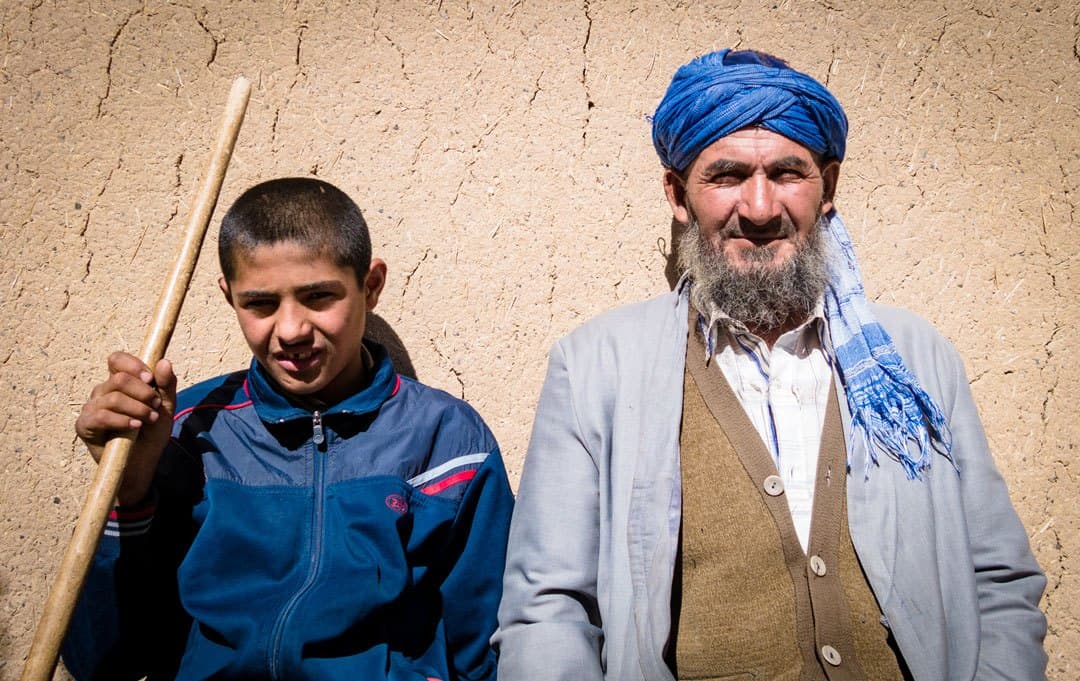
Dealing With Currency
It can be pretty daunting dealing with a new currency that has a whole bunch of 0’s on the end of it. It’s also a perfect time to get ripped off when you arrive in a new country and have no idea what anything is worth.
Download a currency converter app or carry a calculator if you don’t have a smartphone.
If you’re changing money on the black markets it helps to already know what it should be worth. Figure out how much you want to change first, convert it into the local money, then go down to the markets. This way you’ll already know how much to expect.
Make sure when you do the transaction you do not hand your money over first! Wait for the other person to give you the money, count it, then hand over your amount if it’s correct.
Remember, people on the black market get pretty good at ripping off tourists! Watch out for folded over notes, fakes, a bunch of lower bills in the middle of a wad of larger notes, etc.
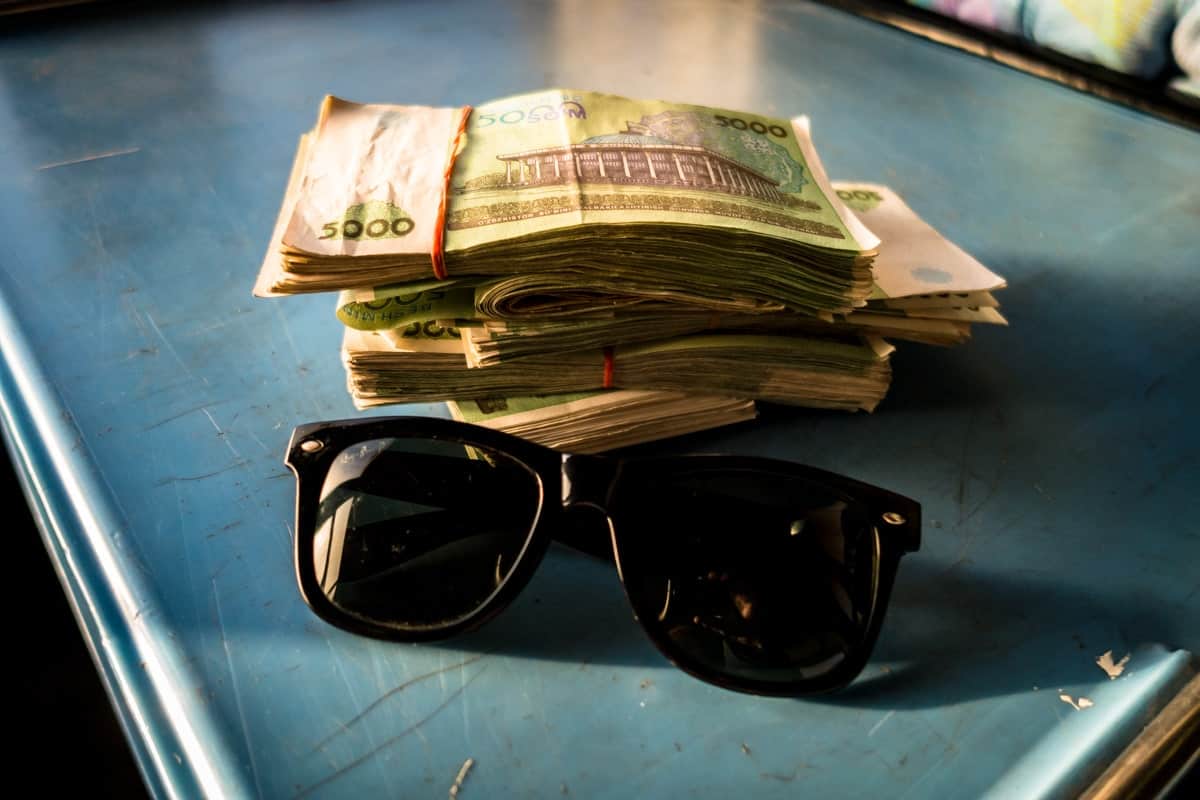
Those are just some of tips on how to travel like a pro!
Do you have any tips of your own? Let us know in the comments below!

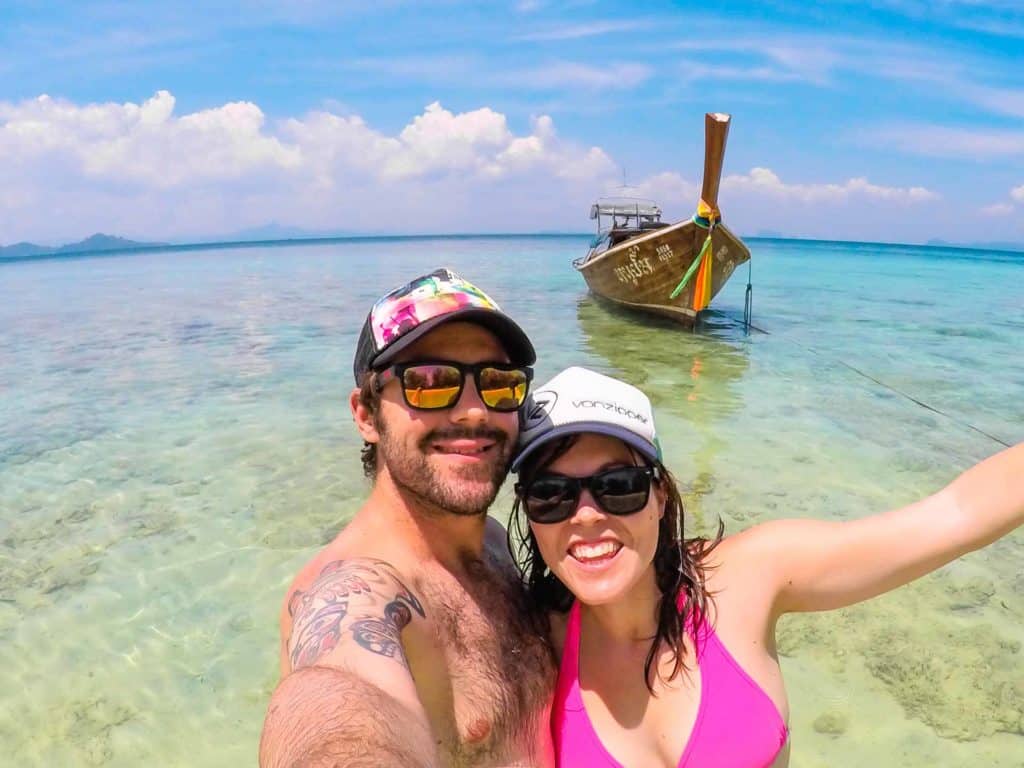
6 thoughts on “How To Travel Like A Pro in 2025”
Bravo! Your recommendations are spot on. I would add traveling in the shoulder season because it is cheaper and less crowded. You may want to check out my blog on 5 Secrets to Happiness for Adventurers.
Great tips Heidi. So true about the shoulder season. We will definitely check your article out. Have a great day.
How to write travel blogs like a pro. You two do .. Great work!
Thank you so much.
I have recently started following you guys everywhere (except the real world. Oh, how I wish we would bump into each other somewhere 😉 ) but love your stories and travels. Loved this one, very humble and some noteworthy points particularly picking up the local language and avoiding touristy areas. Keep them coming 🙂
Thank you so much Deepika. We really appreciate it. When we do cross paths with you, we’d love to catch up for a drink. We are so glad we can pass on the information that we have learnt. We hope this will help more to avoid the terrible sides of travel and open their minds to have better travel experiences.